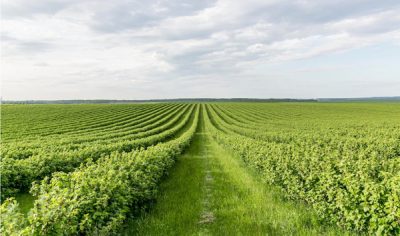Reducing Nitrogen Output Destroys Farms: Ireland Joins Canada and the Netherlands in Contributing to World Famine

All Global Research articles can be read in 51 languages by activating the “Translate Website” drop down menu on the top banner of our home page (Desktop version).
To receive Global Research’s Daily Newsletter (selected articles), click here.
Follow us on Instagram and Twitter and subscribe to our Telegram Channel. Feel free to repost and share widely Global Research articles.
***
Thomas Malthus predicted that famine was the inevitable byproduct of agriculturally successful populations: A well-fed population would breed faster than the agricultural sector could grow. For him, that was an unavoidable tragedy. Modern leftist governments, though, have a new approach to this: They are forcing Malthusian famines by mandating fertilizer reductions and seizing farmers’ lands. It’s all part of the Great Reset that the New World Order of Klaus Schwab et al have planned for us: You’ll have nothing, including no food, while they live in their castles on the hill, insulated from the Hobbesian terrors they’ve created.
First, we heard about the complete collapse of the Sri Lankan government. That occurred because the government, anxious for the approval of the World Economic Fund and other green activists, decided to mandate organic farming practices. The world had entirely organic farming in the pre-modern era and there was a name for it: subsistence farming. That meant that farmers subsisted on the margin of famine, with a single bad growing season or blighted crop sufficient to destroy a society.
Next, we learned that farmers in the Netherlands were striking because the government announced that they must reduce their nitrogen output by 30%-70%, something that will destroy farms—and that the government is seizing farmland to ensure this reduction goes forward.
Up until now, Holland has been one of the preeminent food-producing countries in the world but the farmers’ own government seeks to end that. To add insult to injury, Geert Wilders published a letter showing that the government intends to use the expropriated land to house “asylum seekers.”
Two more countries are joining the list of countries with governments that are deliberately embracing famine. Despite the disruption in the world food supply because of the two years of COVID lockdowns, Justin Trudeau’s government is planning to implement a plan from 2020 that will see the country reduce its nitrous oxide emissions by 30% over the next ten years—and, preferably, to reduce them by 40-45%. The ministers in both Alberta and Saskatchewan have complained, noting that this will substantially reduce food production.
However, when it comes to food production, Canada has a plan: Bugs. The government has invested in a plan to produce 9000 metric tons annually of crickets for animal and human consumption. If it’s any consolation, the solons of the New World Order will also be eating bugs. After all, lobster really is kind of like the grasshopper of the sea, right?
What we’re witnessing is a form of madness, as various world governments enter into a race to return the world to a time of cold, dark, and famine. It’s no wonder, then, that Ireland just hopped on board the “let’s create a famine” bandwagon. Ireland too is demanding that its farmers cut their emissions by 28%:
According to a report by The Times, Ireland’s Minister for Agriculture, Charlie McConalogue, has already agreed to force a cut of either 27 or 28 per cent on the country’s farming sector, a move that will cause significant disruptions to local businesses.
However, the publication also claims that there is still significant pressure on McConalogue to implement a curb of 30 per cent, a measure the head of one of the country’s largest farming organisations has said would result in a massive cut in cattle numbers in the country.
By the way, if you think it can’t happen here, in America, you’re wrong. One of the byproducts of Biden’s war in Ukraine is that American farmers are no longer receiving the fertilizer that Russia and Belarus have provided for the world. What fertilizer there is has become much more expensive. Limited, expensive fertilizer means limited, expensive food supplies. In a time of modern farming that should see unlimited amounts of food, famine will soon be haunting America too.
This is all to “save the planet,” of course. The current world population is around 8 billion. And while the Georgia Guidestones may be nothing but dust now, it’s reasonable to believe that it states a target world population that sits very well with the World Economic Fund and its acolytes around the world: Fewer than 500 million people. The rest of us are extraneous and would be better as natural fertilizer than as living, breathing CO2 polluters.
*
Note to readers: Please click the share buttons above or below. Follow us on Instagram and Twitter and subscribe to our Telegram Channel. Feel free to repost and share widely Global Research articles.
Featured image: Fields by freepik.

